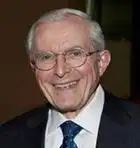Summing Up
Whether or not this month's respondents represent a self-selected sample of enthusiasts for the book, The Wisdom of Crowds, they agree that the findings it presents have strong implications for leaders, particularly those in large, compartmentalized organizations.
Several expressed the view that the term "crowd" might be a bit extreme in describing effective management processes. For example, John Baxter suggests that "a group of knowledgeable 'veterans' ... in conjunction with others from the external world ...can make more well-informed judgments than a crowd…." As Dean Robb put it, "... the use of the term 'crowd' is inappropriate, because crowds generally fail the test of independence from each other's decisions."
Others saw the findings strongly affirming the role of leadership. D. Prescott Andersen commented, " ... it does not take away the need for strong leadership. Without leadership there would be no questions to answer and no problems to solve." John Dmohowski echoed this view in his comment:"I don't believe groups would be as useful in establishing agendas, developing alternatives, or setting priorities—things for which leaders are required ... And I certainly would not want large groups involved in developing vision, innovation, or strategy ...." Joe Violette added, " ... getting those ideas and solutions to surface, particularly in group discussions, takes a very effective leader."
But the nature of leadership affirmed by the "wisdom of crowds" is clearly circumscribed, according to others. Jack Hughes, for example, says, "The Wisdom of Crowds has effectively shattered the narrow view that the right leader can consistently make the right decisions. The right decisions are based on the best information, information offered by your employees, customers, vendors, and investors." Ian Cook points out that "leadership is more about involving people in understanding, interpreting, and shaping their reality than it is about telling them their reality." Mary Ann Ulrich describes what may be one of the most important challenges in leading the crowd when she comments that "... trusting the result will be the greatest challenge for most leaders and the greatest area for learning."
These comments raise several additional questions. Do these ideas apply in all situations begging for wisdom? For example, David Physick opines that "Different situations require different leadership: sometimes single-minded dogmatism and other times much more collegiate or crowd-based leadership. The good leaders learn where to set the dial along this continuum according to the situation." Do you agree? Does unleashing the "wisdom of crowds" work well in situations where rapid-fire decision-making is called for? Or is it a luxury available only when the pace of the organization's business permits it? What do you think?
Original Article
Are large groups of reasonably informed and motivated people able to make better decisions than a small group of experts? James Surowiecki, in his recent book, The Wisdom of Crowds, reports on a diverse body of work that suggests that they are. If the researchers whose work he chronicles are right, it could have profound implications for the role of leadership in organizations. And it should provide some comfort to all who, like Americans this month, vote to elect their leaders.
In addition to being reasonably informed and motivated, the "crowds" in Surowiecki's title, to be most effective, have to have three characteristics: diversity of points of view, independence from each other's opinions, and decentralization (with access to and the ability to draw on "local knowledge"). And they have to have some kind of mechanism for aggregating "private judgments into a collective decision." In a variety of situations researchers have found that the median view of members of a crowd is more accurate than all but a handful of individuals, and that no individual is able consistently to make decisions superior to those of the crowd. Large groups of people have been found to be better than a few experts at everything from estimating the true magnitude of things (as in guessing the number of jelly beans in a jar) to diagnosing causes of problems (as in determining that the O-ring seals were the primary cause of the Challenger disaster) to predicting outcomes (through, for example, market-mediated trading systems, so-called "decision markets," for predicting the outcomes of things such as presidential elections and even potential success in war).
Taken as a body, it may be possible that the findings of these studies could help us understand why some organizations are more successful than others, why organization size can matter, why decentralization and diversity works, and why lines of communication that enable members at all levels of an organization to make their views heard are so important. If this is the case, why is so little attention paid to this kind of research by corporate leaders? And what does it say about the true nature of effective leadership?
If the essence of leadership is, as my colleague John Kotter maintains, the ability to achieve "extremely useful" change, just what does this research say about how such change is best achieved? Does it suggest one more reason why we should put aside the concept of the imperial leader whose wisdom is questioned only at one's risk? What does it say about the need for leadership behaviors that foster learning, communication, and involvement from the bottom to the top of an organization? Is it the best argument yet for the idea of diversity, broadly defined, in organizations? Or is it a utopian dream forged in the laboratory by organization theorists in support of the mantra of decentralized management and its effectiveness—one which flies in the face of the often-expressed need to have everyone in the organization "on the same page?" What do you think?

